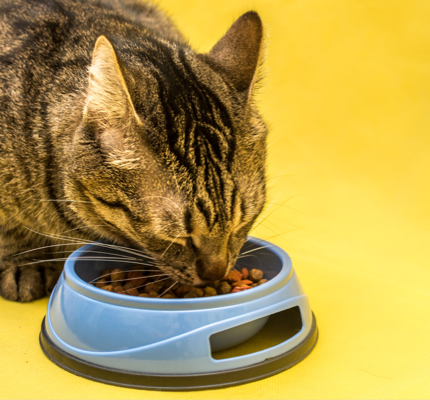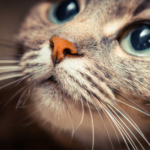Not all cats are the same. Kittens have different nutritional requirements than adult cats, and the same can be said about cats with differing physical activity levels.
It goes without saying that kittens have specific dietary needs to support their growth and development. A food that includes EPA and DHA (in Omega-3 and Omega-6) and Taurine promotes brain development and healthy eyes. High quality proteins support optimal muscle and bone growth and development, and fish/fish oils are great sources of Omega fatty acids to support a healthy skin and coat growth. Generally they have more calories to help them meet their growth requirements.
One your kitten turns one year old, continuing a diet rich in animal protein and Omega fatty acids is integral. Transition them to an adult cat formula, because they could become overweight or obese if they continue to eat a diet meant for kittens, especially if they live a more sedentary lifestyle. If your cat is primarily an indoor cat, consider a diet that will help them maintain a proper weight. Try to rotate their diet as well; exposing them to different proteins, from poultry to red meat and fish, will help with picky eaters and even decrease the chances of your cat developing an allergy or sensitivity.
Mature and senior cats often have specific nutritional needs as well. Cats with mobility issues may benefit from a food that contains glucosamine and/or increased Omega fatty acids. Older cats may also suffer from illnesses such as kidney disease or heart disease; in some cases, feeding the appropriate cat food can actually be an effective method to managing these diseases.
As always, no matter the life stage, be sure that you are providing lots of fresh water and other means of hydration!
Last modified: October 7, 2023




